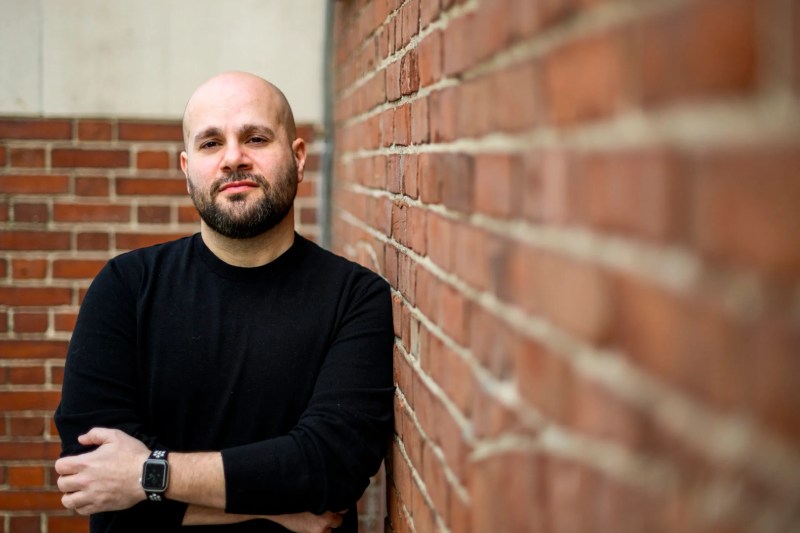Published on
Why James Corden is looking to use tax breaks to build on Barbie’s success and woo more Hollywood filming to Britain
The former “Late Late Show” host’s plan for a film studio in North East England is part of government-backed efforts to ensure the likes of Margot Robbie and Ryan Gosling continue to flock to the U.K. for filming.

LONDON — Barbie might hail from Malibu, California, but it was a corner of South East England that played home to Barbie Land in the smash 2023 film.
And with Warner Bros. claiming that the movie starring Margot Robbie pumped more than £80 million ($99 million) into the British economy while being shot at its studios in Leavesden, Hertfordshire — a county bordering the north of London — it should come as little surprise that other parts of the U.K. want to get involved.
James Corden, the former host of “The Late Late Show” on CBS and known in Britain for co-creating the BBC comedy series “Gavin and Stacey”, and his company, Fulwell 73, have been part of a half-billion pound deal to bring a film and TV studio to Sunderland, a former ship-building city in North East England.
Fulwell 73, producers of the Netflix series “Sunderland ‘Til I Die,” worked with Cain International as part of a joint venture called FulwellCain Studios to secure £450 million ($568 million) of private investment for the project.
They also lobbied for a further £200 million ($248 million) of support over 10 years from the U.K. government to make it financially viable.
That came in March when Chancellor Jeremy Hunt, the U.K.’s finance minister, used his spring budget to confirm there would be government investment to help turn a former shipbuilding site on the River Wear into the Crown Works Studios, one of the largest production sites in Europe with 20 sound stages.
Hunt had hinted at his intention during a visit to Sunderland in November, telling reporters: “All I will say is, this year’s California blockbuster ‘Barbie’ was shot in Hertfordshire — next time, let’s have a Sunderland Barbie.”
FulwellCain has been keen throughout its pitch to build Crown Works Studios to stress the benefits it will bring to the area, claiming it could generate as much as £344 million ($427 million) a year for the local economy.

When “Barbie” shot at Warner Bros. in Leavesden, it was far from just Robbie and Ryan Gosling, the on-screen Barbie and Ken, who were financially rewarded.
The studio said the production created 685 jobs, employed more than 6,000 extras, supported 754 local businesses and paid more than £40 million ($50 million) in local wages.
It is no wonder then that regions across the U.K. are keen to capitalize, with new studios proposed in the northern England cities of Liverpool and Hull — dubbed “Hullywood” after being used as a backdrop for a host of productions, including Netflix’s “The Crown” — while five sound stages opened in 2022 in Glasgow, Scotland.
Rory Gleeson, assistant professor in English at Northeastern University in London, said having studios on the doorstep has the potential to make life easier for Brits looking to make a career in the industry.
Gleeson said it was “huge for local communities” to have a base for filming so that work was not reliant on passing on-location shoots that “might not come back again”.
“For people who are thinking about retraining or training in the film industry, having consistent work that is near where you live,” Gleeson said, “that can possibly mean it is easier to work with your family, it is easier to work with dependents, it is easier to pursue a career in more suitable working conditions.
“It means more people are going to be getting into the film industry and the TV industry, and also means we have more diversity,” he said. “You are able to have people who are coming from perhaps single-parent families or people from more working class backgrounds that have the support that consistent work brings.
“So having studios there [Sunderland], especially having studios in centers outside of London, will do way more for access to the industry if they are shooting there consistently, which is the big thing.”
As well as having made his own short film, Gleeson speaks with the experience of growing up in a family with Hollywood links. He watched his father, Brendan Gleeson, who has starred in blockbusters including “Braveheart” and “Paddington 2,” pack his bags regularly to travel from Ireland to Hollywood to pursue his acting career.

Gleeson is keen to point out that it is not only actors who benefit from a homegrown movie sector.
“You have a huge amount of secondary benefits to this,” he said. “You need transportation, you need catering — the local knock on effects for hotels, for accommodation is huge.”
People in the construction industry can start looking at it as a viable option, Gleeson said.
“They will be looking at what is needed to put up a huge building, to build huge sets to cater for a large number of people,” he said. “And then you have all the screen skills, like hair and makeup, and a huge amount of creative jobs, like script-supervisor, script editor, as well as the more trained-up things like visual effects.”
Suddenly you might have half the town linked in some way to a local studio, Gleeson said.
“And that gives them a great sense of purpose, as well as feeling part of something and feeling proud of making something in your hometown,” he said.
Local newspapers in Britain have regularly published headlines about drinkers in backwater countryside pubs bumping into the likes of Tom Cruise, or Keanu Reeves crashing a birthday party as film stars take more regular stays in Britain for shooting.
This boom in the U.K.’s film industry was no accident.
While the U.K. setting and heavily weighted British cast for the Harry Potter franchise helped put the country’s film industry back on the map at the turn of the century, the financial incentive for Hollywood to cross the pond for work accelerated after 2007.
The U.K. government that year introduced film tax relief, enabling productions to be reimbursed 25% of their qualifying expenditure as long as the feature film is deemed to have met a number of British cultural tests, including being shot on the isles or having a largely British crew.
By 2013, that same tax breaks package had been extended to high-end television — a timely move, given the streaming wars were about to unleash between the likes of Netflix, Disney+ and Amazon Prime. There is no cap on the amount of tax relief that can be claimed.
And the sweeteners have not stopped there. As well as the money for the Sunderland studios, Hunt committed in his budget to more tax relief for the wider industry.
The rate of tax credit in film and high-end TV was increased by 5% and the government agreed to provide big film studios in England with 40% relief on their gross business rates until 2034. A new tax credit for U.K. independent films with a budget of less than £15 million ($18.6 million) was also announced.
Announced to cheering from Conservative lawmakers sitting behind him, Hunt said: “We have become Europe’s largest film and TV production center with Idris Elba, Keira Knightley and Orlando Bloom all filming their latest productions here.
“Studio space in the U.K. has doubled in the last three years. At the current rate of expansion, we will be second only to Hollywood globally by the end of 2025.”
Britain is not the only place to adopt a tax stance designed to woo Hollywood’s number-crunchers. According to The New York Times, U.S. states are competing with each other to offer subsidies to movie productions.
The newspaper reported that New York has looked to fend off competition from New Jersey by recently expanding its film incentive program by 67% to $700 million, while Oklahoma increased relief from $4 million to $30 million in three years to keep pace with its high-spending neighbor Texas.
Steve Granelli, associate professor of communication studies at Northeastern, points to other examples where tax breaks have helped pave the way for new film centers, including in Louisiana in the aftermath of Hurricane Katrina in 2005 and in Georgia, which he says has become a “hotbed of television and film production in the U.S.”
Some critics in the U.S. argue there is poor return on investment for such subsidies, but the U.K.’s efforts appear to have borne fruit.

The British Film Institute, in its Screen Business report published three years ago, found that for every £1 ($1.24) of film tax relief given to productions in 2019, it generated £8.30 ($10.32) for the U.K. economy.
Granelli said tax breaks can provide production companies with the incentive to set up in a location for the long term.
“You see a lot of shows now moving their production outside of California to other states that are not just providing tax breaks, but have also been providing tax breaks long enough that they were able to build up the infrastructure to shoot film, to have standing studios,” he said.
Corden’s efforts through the FulwellCain venture appear to be following a similar model, Granelli said, in a move that could have directors flocking to England’s North East coast.
“Corden’s plan for a television and film studio, it is not just, ‘Oh, we want the money to be able to film in this location,’” Granelli said. “(It is) ‘we want the infrastructure to be able to film in this location.’
“I think that is the thing that makes it a recurring entity and will essentially drive the local economy, bringing in many more jobs,” he said. “And if nothing else, it brings a kind of novelty to being ‘the newer studio’ or ‘the newer location.’
“The idea of shooting in a new place for the production company or the studio or the actors involved is like, ‘Hey, we are bringing jobs to the local community; we are helping,’ so I think that adds this patina of dignity to a production. I think that that actually has an impact. It might have a lot of people choosing a new studio as opposed to an older studio.”
There can be a downside to relying on Hollywood investment, U.K. film studios found out last year.
The strikes carried out by the Screen Actors Guild-American Federation of Television and Radio Artists (SAG-AFTRA) and the Writers Guild of America had a crippling impact on production in Britain, with reports suggesting studios had become “like ghost towns” during the lengthy walkouts.
And there is the additional concern about the streaming wars looking to have come to a truce, with Netflix and Disney+ both clamping down on password sharing in a bid to boost profits, instead of battling it out for new subscribers.
But Granelli argues there is cause for optimism that work will bounce back as studios look to recover from the strikes.
“This really is a wonderful time to be announcing a new studio, when there is a backlog of productions and scripts that were halted due to the writers and SAG strike in the U.S.,” he said.
“There was a lot that just was shut down, so a backlog of six to eight months means there are a lot of projects that are looking to be shot as soon as possible. There is going to be, who knows, three, four or five years of backlog and production, trying to get things out simply because it was shut down for this amount of time.”
The potential British film industry boom means the prospect of turning more U.K. studio locations into classic Hollywood film backdrops, such as Barbie’s Malibu or Batman’s Gotham City, rather than being shot at Universal Studios or Sony Pictures in Los Angeles.
Is Hollywood concerned that it is other places reaping the financial rewards for the blockbusters it had been famed for in the past? Granelli certainly does not think so.
“I think Hollywood’s not worried because there is so much content that is going to be needed,” he said.
“Then add on to that the backlog that happened because of the strikes — that adds to the amount of content that needs to be produced in a short space of time. I imagine they are welcoming more studios, more places where things can be shot.”
So with Hollywood’s blessing and with the cash-back incentive offered by the British taxman, Robbie and Gosling could find themselves shooting “Barbie 2” on sound stage 20 of Corden’s shiny new Sunderland film studios.
Patrick Daly is a Northeastern Global News reporter in London. Email him at patrick.daly@nulondon.ac.uk and follow him on X/Twitter @bypatrickdaly.









